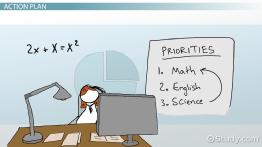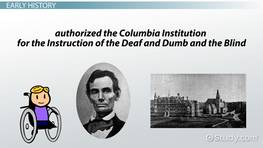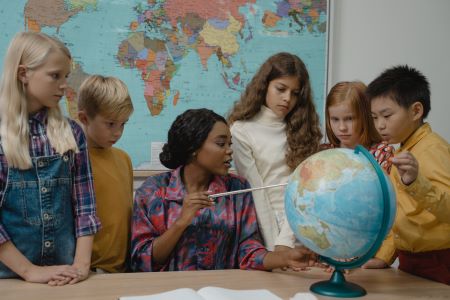Explore Education & Teaching
Education & Teaching Courses
The collection of education and teaching courses available at Study.com cover a variety of topics. Working through these courses will provide an understanding of the history of education and teaching, as well as educational theories and applicable laws.
Explore our full library of education & teaching courses:
- Education 101: Foundations of Education
- History of Special Education
- Understanding & Applying STEM Education in the Classroom
- Applying Learning Theories in the Classroom
- Curriculum Development for Teachers
- Instructional Coaching for Teachers
- Motivating Students to Learn
- See all education & teaching courses
Institutional & Ethical Issues in Special Education
Understanding Special Education Law
Child Abuse & Neglect Training for Mandated Reporters
Conflict Resolution in Schools
Measuring the Effectiveness of Learning Initiatives
Explore our full library of education & teaching courses:
What is Education & Teaching?
Education is a discipline that involves teaching and learning through the means of transmitting and acquiring knowledge and skills. Formal education typically occurs in learning institutions such as schools, colleges, and universities and is generally guided by teachers. Teaching involves sharing knowledge and experiences in an organized way, guiding others to foster critical thinking skills and intellectual growth. A culture's norms, values, knowledge, and traditions are transmitted through education, helping to prepare students for their roles and responsibilities within society. A person's character can also shaped be through educational experiences.
Pedagogy is the term used to refer to the art and science of teaching methods. Just like there are various teaching methods to consider, each student brings different learning styles, preferences, and strengths into the classroom. Educators must understand a variety of pedagogical theories and approaches to teaching, as well as how to apply those methods to best meet the needs of each of their students.
One's character is also shaped by their educational experiences. Hence, social-emotional learning is an important part of formal education. It is vital for teachers to understand social-emotional development to help students learn to regulate their emotions, cope with frustration, and socially interact in respectful and responsible ways.
Along with understanding instructional strategies, available resources, differing learning styles, and social-emotional development, teachers must be knowledgeable about many specialized areas of education. These areas include special education, education law and policy, teaching English as a second language, and student support. All of these areas have the essential purpose in adequately meeting the educational needs of children and other members of society.





Teaching Strategies & Pedagogy for Today's Classroom
 |
In the modern classroom, teachers need to be adaptable and light on their feet in order to best meet the needs of their students. To do so, it's best to remain up to date on teaching strategies to ensure that all learners are able to be as successful as possible when inside the classroom. Here are some great resources to help get and keep you up to date on successful strategies in and out of the classroom:
Teaching Strategies Proven to be Effective in the Classroom:
Every teacher has their own unique strategy for leading their students through coursework and ensuring their understanding of the material. While each teacher has their own unique strategy, no two students and no two classrooms are alike - and to be as effective an instructor as possible it's important to adapt to best fit the needs of the learners in your classroom. Remaining up to date on learning strategies can be incredibly beneficial for both the students and the teacher alike, check out some strategies that have proven to be effective:
- Differentiated Instruction: In order to best meet the needs of all learners within a classroom, differentiated instruction provides students an opportunity to learn a single lesson through a variety of different activities and ways of presenting information. This strategy can be particularly effective for English language learners or when teaching in an inclusive classroom including students with learning disabilities.
- Culturally Responsive Teaching: The integration of the cultures of your students into the classroom can be incredibly beneficial for establishing connection to the course material and for presenting information in a way that is easily understood by students. Culturally responsive teaching can be particularly beneficial when teaching subjects like history (link to pillar?) & language to allow for students to consider events through various perspectives and cultural lenses. One of the greatest benefits of this strategy though, is that it allows for all students to feel understood and accepted - and provides an opportunity for students & teachers alike to learn from each other's life experiences.
- Project-Based Learning: Ensuring that your students are actively engaging in the learning process and course material being taught is essential to student success. Project-Based Learning goes beyond submitting projects in a classroom environment, and instead focuses on long-term projects that may have more real-world application. Longer-term projects with real-world application can also be used as a professional development opportunity as well, exposing students to real-world applications that they would otherwise not have visibility into.
- Gamification: One of the most effective ways to get students to engage in the course material is to gamify the material and turn a learning experience or objective into a game. Turning a vocabulary lesson into a game of charades or utilizing digital tools like Kahoot! can bring students together to not only learn the material that's being taught - but to help make learning more engaging and fun!